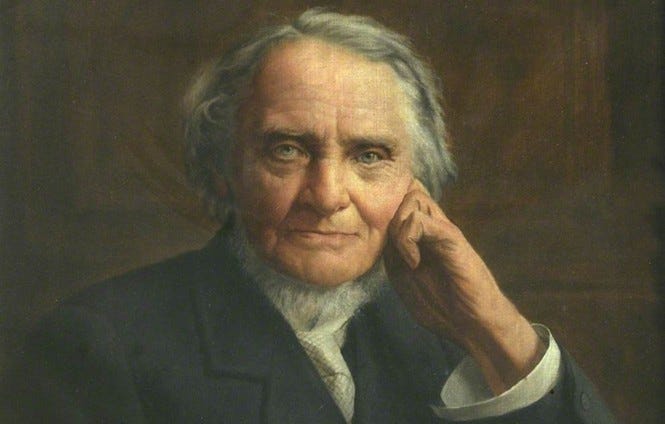Let’s journey back for a moment to ancient Judah—to the days of King Jehoshaphat. In 2 Chronicles 18, we find him making a reckless alliance with King Ahab, leaping into a battle that was not his to fight. Maybe the exclamation “Jumping Jehoshaphat!” is especially fitting? But by chapter 20, the tables have turned. This time, war is not a choice. It is coming to his doorstep. A great and hostile multitude—Moabites, Ammonites, and the mysterious Meunites—are marching toward Judah with one goal: destruction.
Understanding that a multitude is approaching, one with bad intent, Jehoshaphat is rightly concerned. No, he is rightly terrified. He summons leaders from throughout the land and he lays it all out before them.
[Jumpin’ Jehoshaphat!]
They look around. They are few, but their enemies are many. They don’t have the strength to stand against them. What are they to do?
The king sees but one option. Military might won’t save them. The power of horse and sword will not avail. Jehoshaphat calls the people to prayer. As we’re told, “he set himself to seek the Lord, and proclaimed a fast throughout all Judah” (v. 3).
What do we do when chaos marches toward us? When the battle is not of our choosing—but the threat is very real?
Fortunately, Jehoshaphat realizes something when he asks, “O Lord, God of our ancestors, are you not God in heaven? Do you not rule over all the kingdoms of the nations?” (v. 6). He acknowledges how God has protected them in the past. A sanctuary was built to honor the Lord.
He continues his prayer, “If disaster comes upon us, the sword, judgment, or pestilence, or famine, we will stand before this house, and before you, for your name is in this house, and cry to you in our distress, and you will hear and save” (v. 9).
In time, their admiration of the temple turned into idolatry. It was believed that no harm could come to them, because it was the place where sacrifice was made to the Lord. It was the dwelling place of their God. The prophet Jeremiah tried to warn them when the Babylonians became a threat, but to say his message fell on deaf ears would be putting it mildly.
Still, that’s over two centuries in the future.
He ends his prayer by admitting their futility, “we are powerless against this great multitude that is coming against us. We do not know what to do, but our eyes are on you” (v. 12).
We do not know what to do, but our eyes are on you.
In his book on Dietrich Bonhoeffer, Eric Metaxas tells us, “In May 1932, a few months before Hitler came to power,” Bonhoeffer preached a sermon using that verse as his scripture reading. “This text was on his mind a long time before and a long time since.” (538)
Bonhoeffer came from a family that was well-to-do, one that was cultured. His family held to the best of German tradition. However, the emergence of the Nazis was seen by them as a disaster and as a disgrace for the nation. They viewed the whole thing with disgust.
As time went by, and as the atrocities of Hitler became more blatant, Bonhoeffer began to wonder, if no other course were possible to remove this madman (all other avenues having failed), would violence be acceptable? With much struggle and with much soul searching, he believed he received his answer from the Lord. When confronting this level of evil, violent resistance was acceptable. It might even be necessary.
We do not know what to do, but our eyes are on you.
So back to Jehoshaphat. What happens next? How is his prayer answered? A fellow named Jahaziel steps forward with a word from God. He relays this message: the Lord says not to be afraid of this great horde. “The battle is not yours but God’s” (v. 15). With that, they are all led in blessing and celebration.
The next morning, King Jehoshaphat appoints singers to march before the army and sing praises. We have a military formation with worship leaders serving as the vanguard. Singers and musicians going into battle isn’t strange, in and of itself. Throughout the centuries, music has been used to stir up a fighting spirit. In this case, it is the worship of the Lord, not an anthem to king and country. (Or queen and country.)
Apparently, the strategy works. They have employed some divinely inspired tactics! We know that because their enemies all turn on each other. This is the very definition of “friendly fire.” And they give a brilliant performance of firing friendly, because not a single one of them survives!
When the people come to survey the situation, they see all the dead soldiers, but they also see plunder aplenty. Livestock abounds, with items of all sorts, clothing of all array, and they come upon some really pricey stuff. It is truly an embarrassment of riches. Think of it as the world’s largest estate sale. They’re hauling it off for the next three days.
After all that, they got together, and they “had church.” They got to blessing the Lord so much that they changed the name of the place. They called it the Valley of Beracah, that is, the Valley of Blessing! They were talking about that worship service for a long time.
It appears word got out about the fate of those Moabites, Ammonites, and Meunites, because we’re told, “The fear of God came on all the kingdoms of the countries when they heard that the Lord had fought against the enemies of Israel. And the realm of Jehoshaphat was quiet, for his God gave him rest all around” (vv. 29-30).
It seems that everyone got the memo: lay off Judah for a while, that is, unless you want to find yourself going after your neighbors—and your neighbors coming for you!
The nineteenth century Scottish minister Alexander MacLaren commented on Jehoshaphat’s prayer, saying it demonstrated “the confidence of despair” of he and his people. The confidence of despair—what a delightfully counter-intuitive insight!
They all know they are up against it, but “the very depth of despair sets them to climb to the height of trust… Blessed is the desperation which catches at God’s hand; firm is the trust which leaps from despair!”
[Alexander MacLaren, 1826-1910]
We know not what to do, but our eyes are upon you.
We might be reminded of Luke 3:10, what John the Baptist said to the crowds who sought him out. They asked, “What then should we do?”
There was a movie from 1982, The Year of Living Dangerously, with Mel Gibson, Sigourney Weaver, and Linda Hunt. Hunt won the Academy Award for her portrayal of Billy Kwan. She was the first person to win an Oscar for playing a character of the opposite sex.
“The year of living dangerously” refers to the Indonesia of 1965. President Sukarno is threatened by General Suharto during an attempted coup. Mass killings are launched. Billy asks the question, “What then must we do? We must give with love to whoever God has placed in our path.”
Adding a bit of levity, a saying might come to mind, a saying which goes back centuries, “Bloom where you are planted.” It was later popularized by the noted philosopher Mary Engelbreit.
Here’s another reflection from our friend Rev. MacLaren, speaking in poetic fashion. “When the valley is filled with mist and swathed in evening gloom, it is the time to lift our gaze to the peaks that glow in perpetual sunshine. Wise and happy shall we be if the sense of helplessness begets in us the energy of a desperate faith.”
Have any of us ever experienced that strange reality of confident despair? I’m not talking about despair the way we usually think of it. I’m not suggesting a situation when life seems to have lost all meaning. I’m not referring to when we feel all hope is gone. Our hope is found in the unshaking power and love of Jesus Christ.
MacLaren adds, “We are most likely to conquer if we lift up the voice of thanks for victory in advance, and go into the battle expecting to triumph, because we trust in God… A thankful heart not seldom brings into existence that for which it is thankful.”
When Jahaziel brought the word of God to Jehoshaphat, he had a decision. He could have simply plunged his army into a useless battle and suffered a devastating defeat. He could have surrendered. Or he could do as he did—trust that the Lord was with them. Trust that this was his answer to prayer. Trust and see what the Lord will do.
The same is true with us. Do we plunge headlong, come hell or high water? Do we simply surrender? Or do we give thanks, relying on the grace of God to see us through? Are we willing to look despair in the face and say, “You will not defeat me”?
We do not know what to do, but our eyes are on you.
That was the prayer of a desperate king. It became the anthem of a threatened nation. And it is still a cry of faith for God’s people today.
When our resources are spent, when the answers are unclear, when despair tries to take the upper hand—can we, like Jehoshaphat, lift our eyes? What if our battles, too, belong to the Lord? What if worship is the weapon that leads the way? What if praise precedes the plunder?
We can choose to run. We can choose to surrender. Or we can choose to trust. And when we do—when we set our eyes on Him—the Lord still fights for his people.
Let us then walk forward in the confidence of that strange, beautiful thing: the confidence of despair, the faith that clings to God precisely because there is nowhere else to turn. When our eyes are on the Lord, victory is not just possible—it is already on its way.
[photo by Max Pruvost on Unsplash]
Where are your eyes today? What battle are you facing? Will you trust the God who still speaks through valleys of blessing?
Thanks be to God through Jesus Christ our Lord, who found and displayed indestructible confidence in the deepest of despair.
(This post is a variation of a previous one.)







